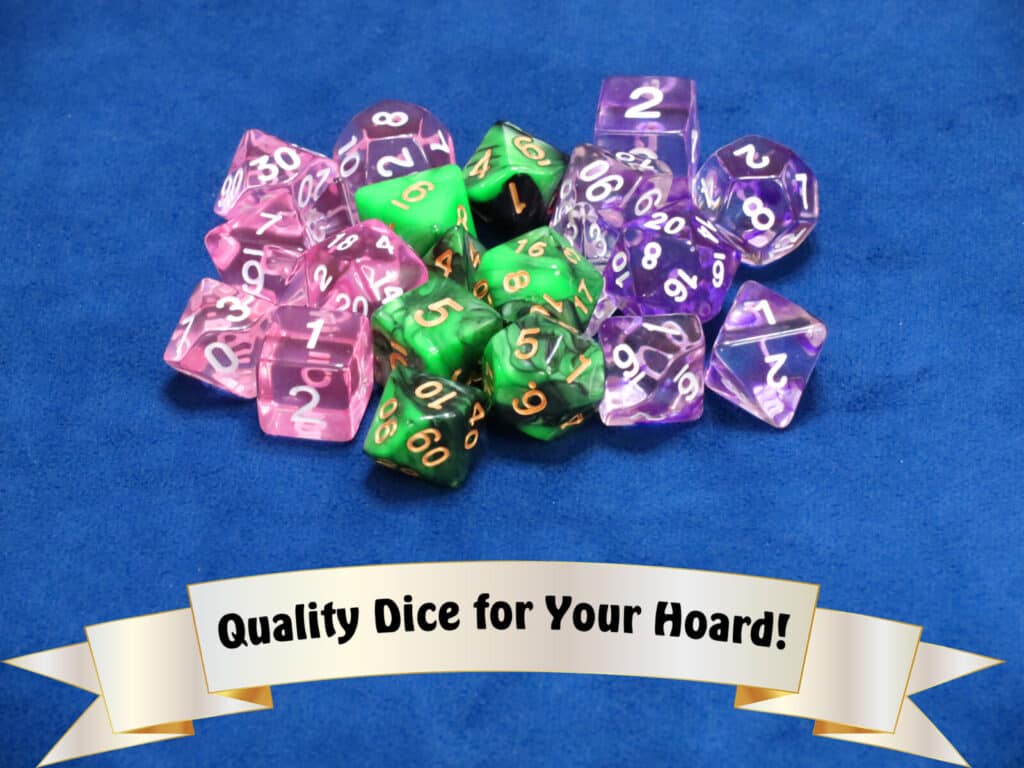As if the questions of passive perception weren’t potentially confusing enough, it seems like a lot of tables have issues with figuring out when perception is the right skills to use versus when the investigation skill is the right pick. On some tables this has actually become synonymous to the point where the most common question in response to a perception or investigation check is whether or not the player can use the other one instead.
So did 5th edition Dungeons & Dragons mean for perception and investigation to be the same thing? Why is there so much confusion around when each of these skills apply?
By the rule book, perception involves anything that uses the senses: sight, smell, sound, taste. They are things you notice. Investigation is using intelligence to give meaning to something you notice or to use logic and analysis to piece together deeper information or meaning from what you perceived with your base senses.

If you think this sounds very similar with points of overlap, it’s because they are in the same wheelhouse. The way the game plays, investigation is something that is meant to go hand in hand with passive perception. Your eye catches a detail that seems off. Roll investigation to see if you can figure out what it means.
Is this a completely clear and separate line?
No, not really. Although it gives enough clear guide lines that you can generally draw some lines.
“So first of all, going back to the all important first rule: The DM has final say on all rules and rulings.”
The Player’s Handbook
That said, here’s the guide for using each.
When to Use Perception
Anything using the basic senses. That is what you need when you need to notice something. That doesn’t necessarily mean you understand what you’re seeing/sensing, but perception is just that – perceiving the world around you.
You don’t necessarily get any in-depth information. Perception lets you see the surface information. The moment you need more details or analysis then it’s time to switch to investigation.
Examples of things to notice with perception:
- Hey I think I see swindling smoke from a campfire in the distance
- Did anyone else hear that twig snap?
- Those rations smell like they went bad (follow up: who forgot to salt the meat?)
- This stone on the snowy mountain in the middle of a blizzard feels warm. What the -?
- Tastes…like….burning…..
You can find the investigation version of each of these points in the next section.
Basically perception lets you notice something that wasn’t obvious from the description the DM gives, or that the DM rewards a player with based on a high passive perception.

When to Use Investigation
Investigation is for actually understanding what’s at hand. Something is perceived as being off? Investigate to see what the cause is. See signs of a struggle? Perception might tell you the room is wrecked, but investigation lets you find clues and get meaning/information from what you find about what actually happened.
Investigation gives actual meaning and information to what you see, sense, or feel.
Examples of when investigation comes into play:
- Based on the amount of smoke from the put out campfire, we’re less than half an hour from the outlaw we’re tracking
- The sound of the twig also brushed against something hard and metallic – your hidden individual is heavily armored
- You eat that meat the DM is hitting us all with a CON save (and the bard – the bard was too busy flirting to salt the meat)
- Investigation reveals by the edge of the melt some faint lines to a secret door – but what’s on the other side that could make it so warm?
- Whelp he’s poisoned. Someone call the Paladin.

Do These Have to Be Used Together?
This actually hits to the heart of the problem when going by the letter or trying to use a fully “realistic approach,” is that in most situations you must use two checks at that point. Which means if you have perception without investigation, you had damned well better have someone in your party who can investigate what you point out.
If you’re the other way, then until something’s brought to your attention that investigation just really isn’t doing any good.
And if you’re a dungeon master asking for two checks every time or explaining over and over why the high perception or high investigation didn’t matter when the player was looking around…yeah.
Not a great situation.
If you’re going letter of the law, then most in-game situations requiring an investigation check will require a perception check first and many, many perception checks will then require a follow up investigation check.
Seems like a lot of extra rolls – which can be doubly irritating to players and DM.
Especially when the first check passes and the second one fails.
DMs get to make the call here and in most games I would say having only one check at a time is often the best way to go unless it’s a crucial area where having two actually adds to the game.
These are different, but there is so much crossover that it’s important for a game manager to feel comfortable making the call in any given situation.
Reasons to Treat Perception & Investigation as the Same
While rules lawyers and mostly by the book DMs might not like the hear this, there are a couple reasons why it’s worth considering treating these two as pretty much interchangeable.
Interchanging them can give an out to a small party that might not have a player class that’s good at perception and one that’s good at investigation. While this can be a tough luck sort of thing, in a small short-handed party during a campaign fudging the lines a bit can be helpful to keep the game fun for players.
Ease. Let the player choose which one they want to use to give them the best chance at success. If it cuts down on frustration, helps the game run smoothly, and giving choice is rarely a bad thing when it comes to a D&D campaign.
Generally, this ease rule is what I use about 90% of the time, unless there is a super important situation where I feel like it’s justified to demand a very specific roll or two.
But what you are most comfortable with will go a long way to determining what method is best for you.
In Conclusion
There are many different opinions on how this works best. Each DM is going to have their own way of doing things and that’s fine. If a good DM knows how to keep a game going and flowing then let them make the call.
If you are a DM who is confused about this, feel free to use the article as a basic outline and customize as you see fit!
Other Thoughts on This Topic
- DM David has some big thoughts on this topic
- Nerdarchy’s take on this
- Very good RPG Stack response on this
Other D&D Articles You May Enjoy
- What Feats Are Overpowered?
- Barbarian Vs. Fighter: Which Is Better for Beginners?
- Arcane Focus Vs. Component Pouch: Which Is Better?
- Alert Feat 5E Guide
- Keen Mind 5E

Proud to embrace the locally created moniker of “Corrupt Overlord” from one of the all time great Lords of Waterdeep runs, Shane is one member of the Assorted Meeples crew and will be hard at work creating awesome content for the website. He is a long-time player of board games, one time semi-professional poker player, and tends to run to the quirky or RPG side of things when it comes to playing video games. He loves tabletop roleplaying systems like Dungeons & Dragons, Pathfinder, Werewolf, Fate, and others, and not only has been a player but has run games as DM for years. You can find his other work in publications like Level Skip or Hobby Lark.

